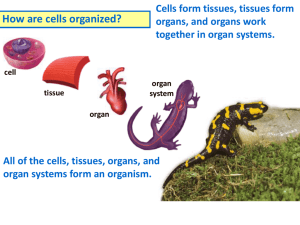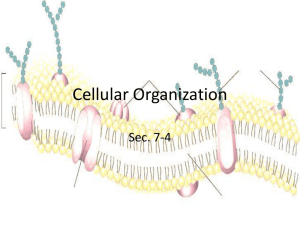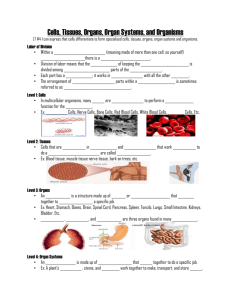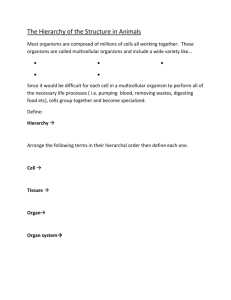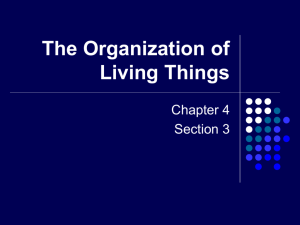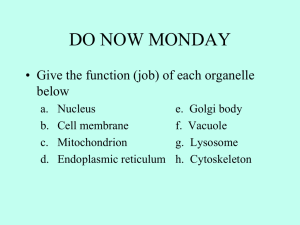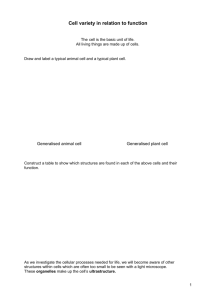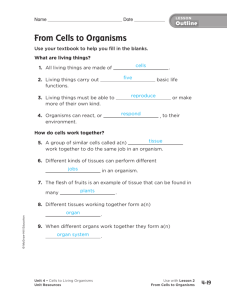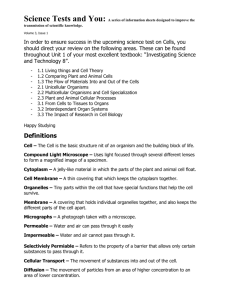Cellular Organization & Classification Presentation
advertisement
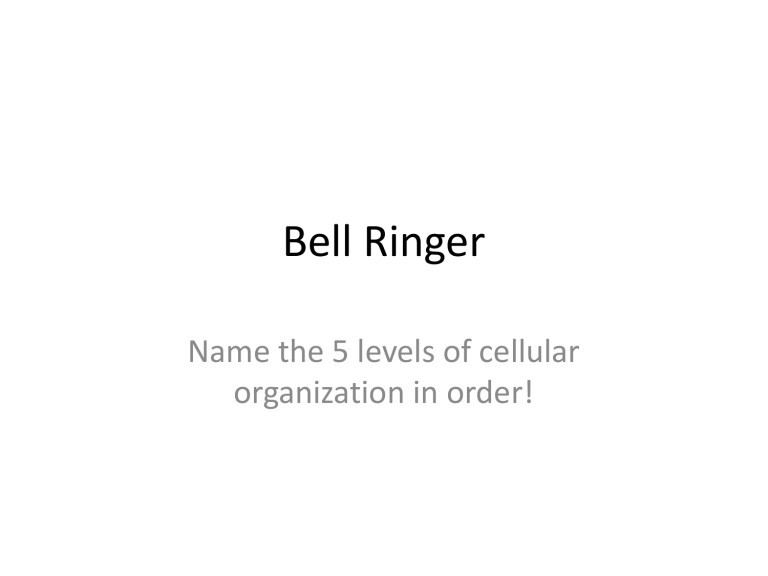
Bell Ringer Name the 5 levels of cellular organization in order! Yesterday • • • • Bell Ringer Chapter 1 section 2 vocabulary Chapter 1 section 2 re-read #1-6 page 43 Today • Bell Ringer • Quick review of section 1 • Classification Core Content/I can • 3.4.1, 3.4.2, and 3.4.3 (posted on bulletin board) • I can describe the 7 levels of classification. How are cells organized? Cells form tissues, tissues form organs, and organs work together in organ systems. cell organ system tissue organ All of the cells, tissues, organs, and organ systems form an organism. Lesson Main Idea 1 Main Idea Review What is the main difference between the ways unicellular and multicellular organisms are organized? Unicellular organisms perform functions on their own. Multicellular organisms have special cells, tissues, and organs to do tasks. Lesson Vocabulary 1 Vocab a Review Chlorophyll is able to use the energy in sunlight. ___________ Similar cells working together at the same function form a ___________. A ___________ is the smallest unit of living things that can carry out the basic processes of life. A group of tissues working together to perform a specific function form an ___________. cell chlorophyll organ tissue Lesson Vocabulary 1 Vocab b Review Organs that work together to perform a certain function make up an _____________. Multicellular organisms are made of more than _____________ one cell. An _____________ is a living thing. _____________ Unicellular organisms are made of a single cell. multicellular organ system organism unicellular organ system (ôr´gən sis´təm) A group of organs that work together to do a certain job. (p. 28) classification kingdom species vertebrate invertebrate vascular nonvascular How are organisms classified? Lesson 2 a Kingdom Phylum Class Scientists classify organisms by sorting them into groups according to shared characteristics. Order Family Genus Species
